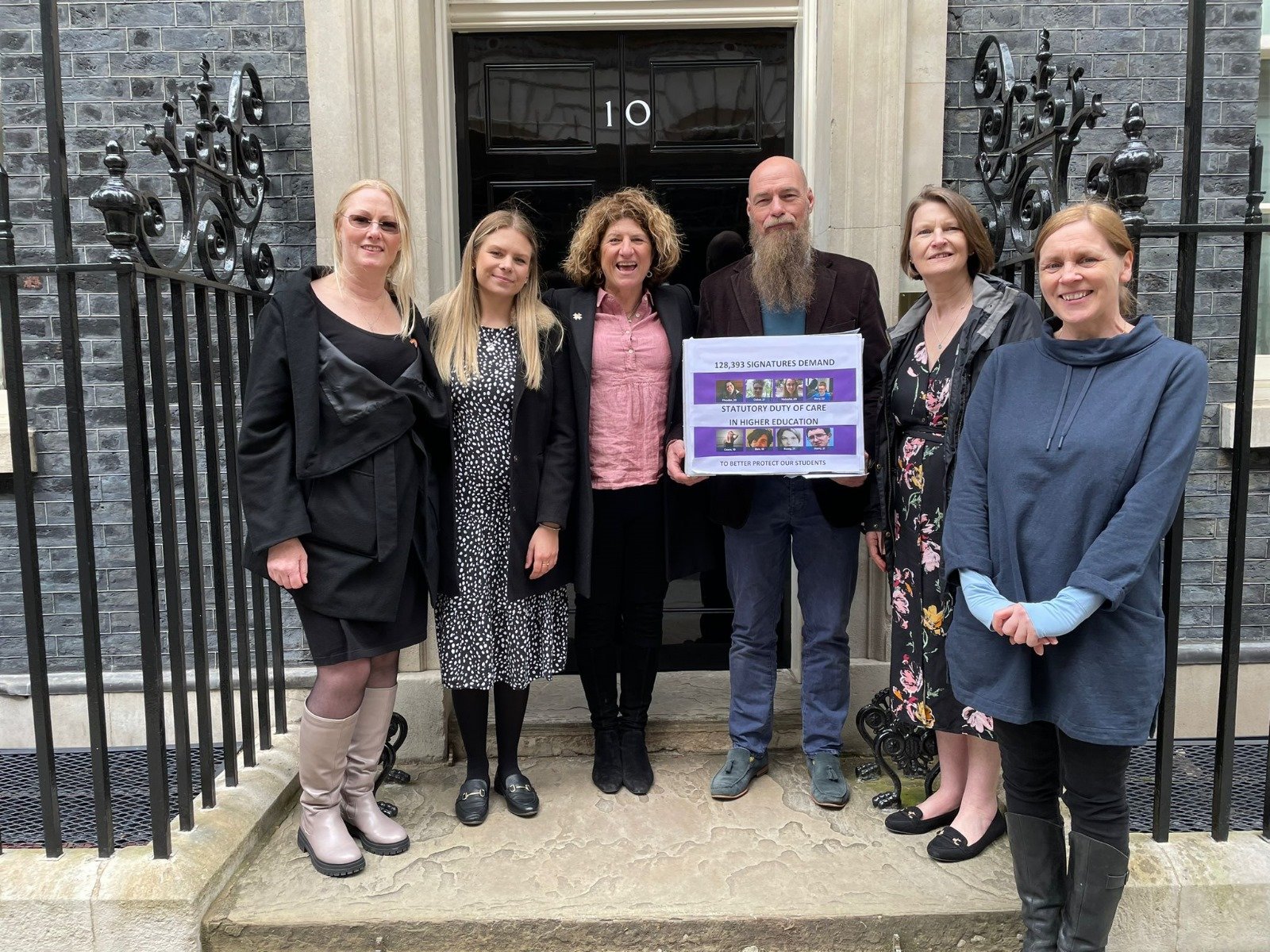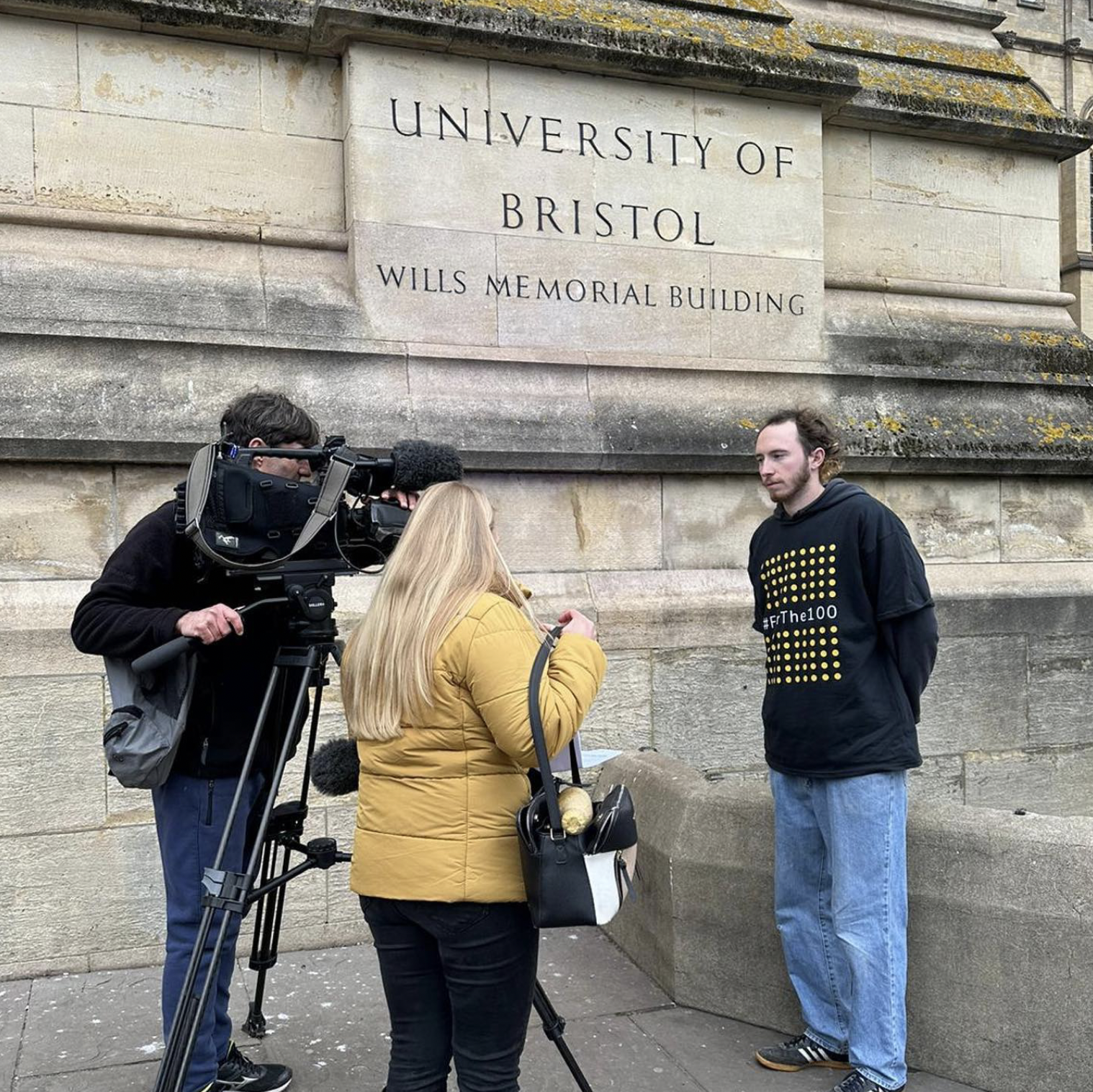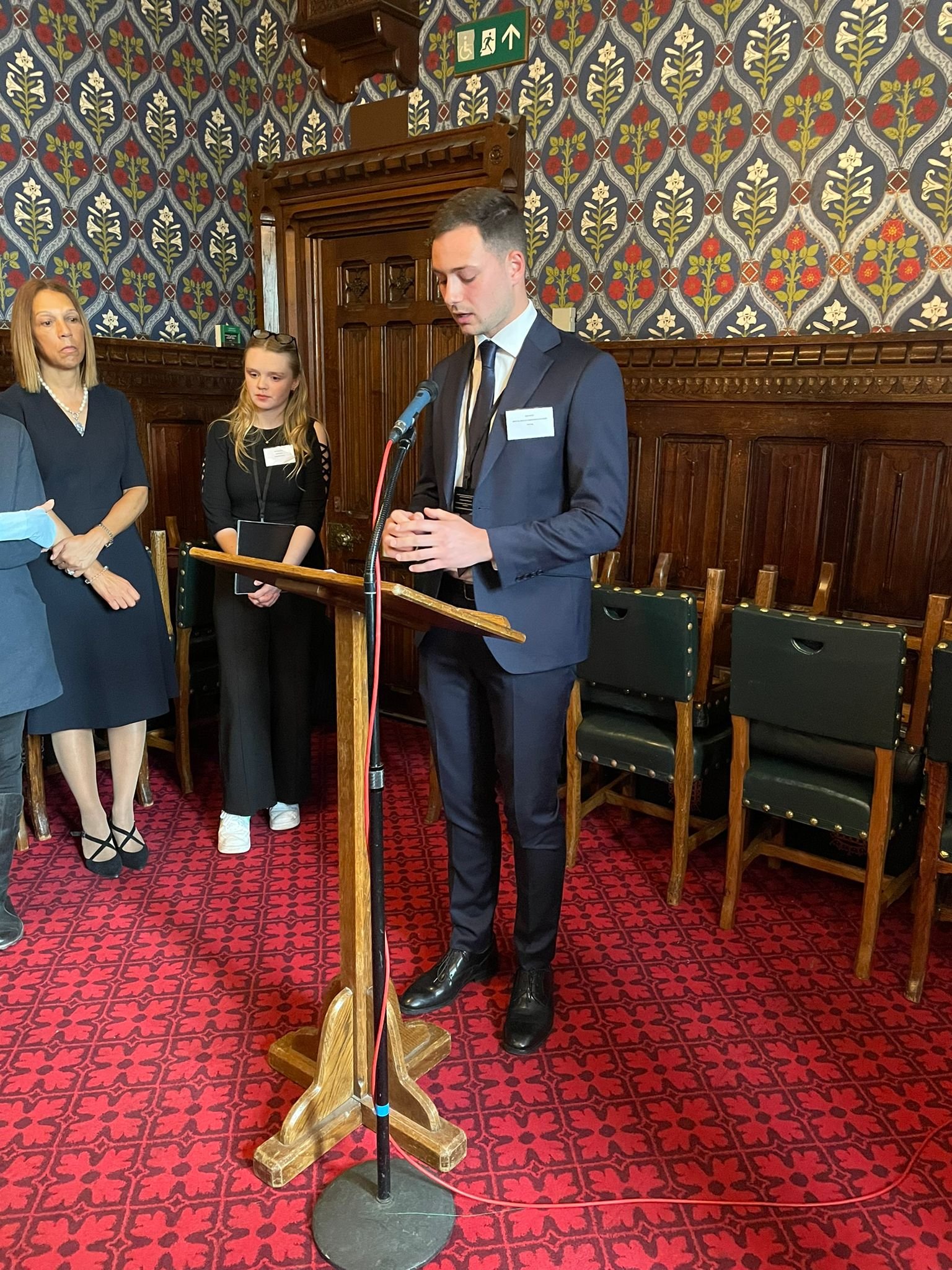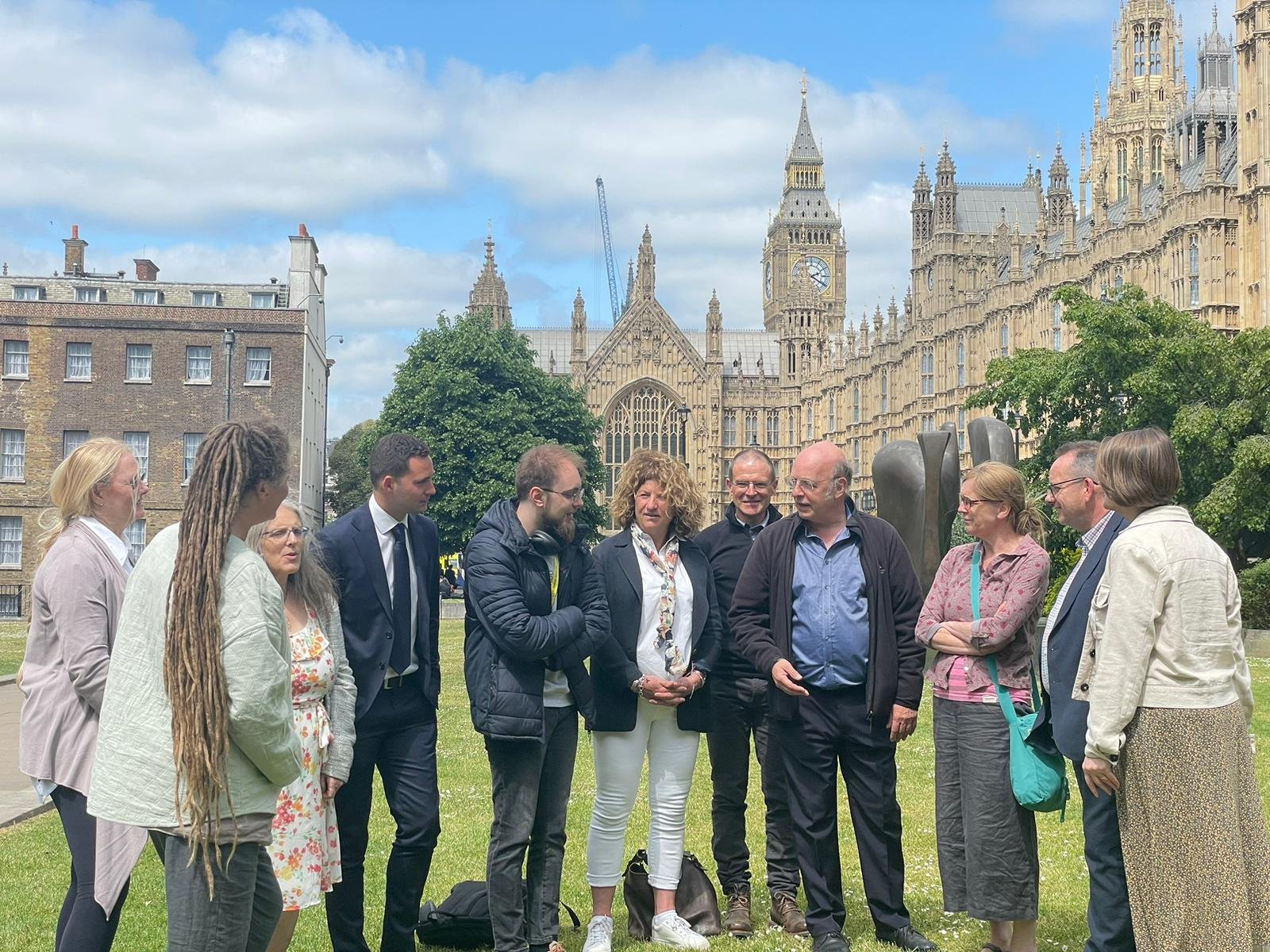The Story of Our Petition to Parliament
The Petition
“There was a message from one of Oskar's flatmates from University. Just going: my God, you've done it. You're going to save people's lives. You're going to do it in his name. And I just burst into tears.”
— Maxine
We needed 100,000 signatures to get our petition for a statutory duty of care at universities debated in Parliament. In the end we got 128,000. It was not a strong start.
“We went around asking everyone we knew for help because we were struggling to get the numbers up…some people in our group had started saying perhaps we should pull out early having made our point because we were not going to hit the target…We were quite down at the time.” — Bob
It was the professionalisation of Jo’s team that turned the tide. But even with the mechanisms of social media, a website, press appearances, and vigils, we were not getting the numbers we needed.
“I was desperate for the milkman to sign this bloody petition, you know…There was a little bit of despondency at one point with a few months to go, and we were like, what should we do?” — Esther
Simon, our lead campaign advisor, insisted on the strength of sharing the families’ more personal stories. The public needed to see the faces behind the names.
“I remember him asking Hilary and Maxine to share videos of the kids doing stuff they loved…There was that one of Phoebe cutting the cake on her 18th birthday, and Oskar at that festival when he was covered in mud.” — Jo
Sharing these videos across social media sites changed things. Particularly after Maxine shared content of Oskar. “ I woke up the next morning and we were at something like 60,000. It was like, my word. It was just gaining constantly. And then there were people from America saying I know I can't sign this, but I've got English friends, I'm going to send it to them.”
“I remember being at work, it was a Wednesday and we were at something like 98,000 that morning….I remember just sitting there thinking that I've got to hold this together because I've got to get home: I work 50 miles away on a train. So I got on the train, I sat down on the phone and there was a message from one of Oskar's flatmates from University. Just going: my God, you've done it. You're going to save people's lives. You're going to do it in his name. And I just burst into tears. I just remember this wall of something just falling apart because we'd actually done it. And I think we believed that would make a difference.” — Maxine
Esther had a similar feeling in that moment. “I thought we were going to change the law when we did that. We had a little party in our classroom at work. It was, this is it, we're going to make history.”







After The Petition
“I understand now how it works, they've ticked a box by having that debate. They're not listening to it. Halfon has the power to just say what he wants…He basically said he thought that duty of care was not the best way to protect students.”
— Esther
The petition proved that 128,000 people believed that universities should have a statutory legal duty of care to their students. Their signatures meant we were to have our chance to make that a reality in Parliament.
On 25th April we had our first moment in Parliament. An event had been organised by Hilary's MP: Helen Grant. The notice given to us was short. We had to produce a presentation and contact MPs asking them to turn up and hear what we had to say.
This was followed by an oral evidence giving session in front of the Petitions Committee on 16th May, and, finally, a Westminster Hall Debate on Monday 5th June.
When we turned up on the 5th June we were nervous. Had we generated sufficient interest, and who, if anyone, would be attending and speaking?
“I remember thinking, this doesn't look very good…literally [the MPs] appeared one minute before the debate was meant to start.” — Jo
Lots of MPs did turn up and speak on behalf of families who had lost children at university.
However, it’s ministers who have the power to make changes. As soon as Robert Halfon [Former Minister for Higher Education] started speaking in response to other members of the House, it was abundantly clear that the Government was going to — in Jo’s words — “kick the can down the road.”
We subsequently discovered that Mr Halfon had decided on a proposed course of action before the debate, thereby not taking into account anything discussed. He had already laid this out to parliamentarians in writing.
“I understand now how it works, they've ticked a box by having that debate. They're not listening to it. Halfon has the power to just say what he wants…He basically said he thought that duty of care was not the best way to protect students.” — Esther
It seemed that there was a total lack of understanding on the minister’s part, or a lack of will to understand at all.
ForThe100 later met with Robert Halfon and Edward Peck on 20th March 2024.
“It was abundantly clear to us that the Government doesn't understand what the problem is that they are trying to fix. Neither does Ed Peck [Higher Education Student Support Champion and Vice Chancellor of Nottingham Trent University ]. My final words to him on the matter were: ‘you don’t know what the problem is because you haven’t looked.” — Bob



The Verdict.
The Government has decided that the answer to our petition calling for a statutory duty of care is to have a Higher Education Mental Health Implementation Task Force investigate student suicides going forwards. They have also ruled against having a minimum standard of professional behaviour in universities, instead opting for the University Mental Health Charter model of ‘continuous improvement’ - essentially maintaining the status quo and protecting a sector that has no proper monitoring or accountability.
The proposed work programme with regard to conducting a national review is that "only student suicides and near-misses occurring in the 2023/24 academic year will be reviewed in the first instance, but the report will consider how and whether lessons have been learnt from historic cases." However there is no established mechanism for systematically collecting and analysing past records.
“In essence, they are telling us ‘We're going to wait for some more deaths to occur before looking to see if any action on our part is needed.’” — Bob
“It’s not okay to allow people to die when their deaths could be prevented. The Government should be trying to prevent something that hasn't happened yet. Surely we learn from history…We don't learn from the future.” — Maxine
Our Response.
Esther stopped Halfon on the way out of the debate in Parliament, as she explained; “I thought in my head that he needs to hear this from a mother's point of view…I said, you need to listen to what we've lost as a community, as a country. You've lost really good people here because you're not listening to us…. The last time I saw my son was on a morgue table, I wasn't allowed to touch him because his body is evidence it's an abnormal death. You're not allowed to hold your child in death, all for the sake of a duty of care that you won't put in place.”
The following few days were particularly difficult. For the first time in months there was silence between the team.
“It was a feeling of great flatness. Yeah, that's what it felt like. I just felt flat and I felt frustrated and I felt disappointed, really disappointed for the families.” — Jo
Minister Halfon had misunderstood what we were petitioning for, or deliberately evaded it. The debate had only looked at one small aspect of things: mental health. It did not look at duty of care in the holistic way we had been campaigning for.
“What was wonderful about that time, it was exhausting, but it kept Oskar alive. It felt like it did to us anyhow. And we could do it in his name and in his memory.”
— Maxine
Going Forward.
The petition was not in vain. We created real awareness around the issue. Hilary, mother of Carl who died by suicide at the University of Nottingham in 2018, is a Senior Lecturer at Buckinghamshire New University. Natasha Abrahart came up in their recent reasonable adjustments meeting where they discussed that she should not have been forced to do that presentation.
“I wrote to Bob and Maggie and said this has trickled down into the sector now. That is so wonderful for all the work they’ve done.” — Hilary
For the families campaigning, the petition was also something of a lifeline.
In Maxine’s words: “What was wonderful about that time, it was exhausting, but it kept Oskar alive. It felt like it did to us anyhow. And we could do it in his name and in his memory.”
Our cause is still strong. We feel an obligation to the 128,000 people who supported the petition asking for duty of care and will continue our fight for it.
We want to thank each of the MP’s who attended the debate.
Nick Fletcher MP
Don Valley
Karen Bradley MP
Staffordshire Moorlands
Christian Wakeford MP
Bury South
Hilary Benn MP
Leeds South
Paul Bloomfield MP
Sheffield Central
Kit Malthouse MP
North West Hampshire
Mary Kelly Foy MP
City of Durham
Helen Grant MP
Maidstone and Malling
Kerry McCarthy MP
Bristol East
Wendy Chamberlain MP
North East Fife
Andrew Western MP
Stretford and Urmston
Angela Richardson MP
Guilford
Tim Farron MP
Westmorland and Lonsdale
Camborne and Redruth
George Eustice MP
Robbie Moore MP
Keighley and Ilkley
James Morris MP
Halesowen and Rowley Regis
Dr Neil Hudson MP
Epping Forest
Debbie Abrahams MP
Oldham East and Saddleworth
Robert Halfon MP
Harlow
Matt Western MP
Warwick and Leamington
Liz Twist MP
Blaydon and Consett
Virginia Crosbie MP
Ynys Môn
Scott Mann MP
North Cornwall























